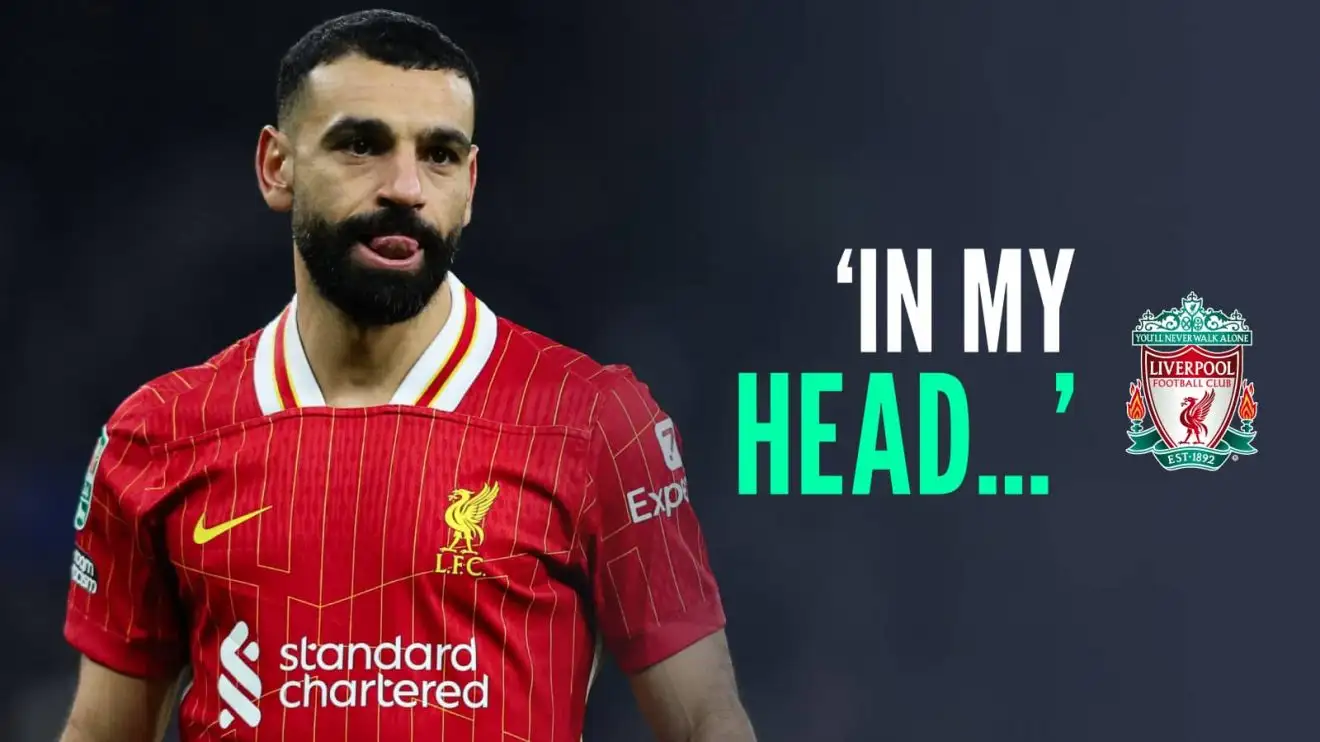Liverpool eyes £130m transfer to fill Salah’s potential departure

Liverpool are moving into a dangerous but emotional period, one that could shape the next chapter of the club’s great story. The talk around Anfield has become louder each passing day. Mohamed Salah, the Egyptian King, the man who carried Liverpool through moments of darkness and made the fans believe again, could be leaving. And now reports say the club are preparing a £130 million transfer move to bring in a replacement who can fill the impossible gap he might leave behind. It sounds strange to even imagine Liverpool without Salah. Since the day he arrived from Roma in 2017, the club has never been the same. He became more than a player; he became a symbol of belief, a story of hard work turning into glory. From the Champions League nights under the lights to the Premier League title that ended thirty years of waiting, Salah was at the center of everything. His smile, his calm walk, his ruthless left foot, his ability to score when hope looked gone — all of it made him a hero to millions. But football moves fast, and even the brightest stars face uncertain futures.
Liverpool are not waiting to be surprised. The club’s management, now led by Arne Slot after the era of Jurgen Klopp, is already working behind the scenes. They know that once the January window opens, offers might arrive from Saudi Arabia again, with Al-Ittihad and others ready to test Liverpool’s resolve with big money. The problem is not just about selling Salah; it is about what comes next. How do you replace a player who has scored more than two hundred goals, won every major trophy, and become the heart of the team’s attack? That question keeps echoing around the halls of the AXA Training Centre. The figure being discussed is £130 million — a huge amount, yet somehow still small when compared to what Salah means to the club. Liverpool are planning to spend that sum on the right man, a player who can carry the weight of expectation and step straight into the fire of the Premier League.
Arne Slot has been calm publicly, but privately he knows what it would mean. Losing Salah would shake everything. Slot is trying to build a new identity, mixing his tactical discipline with the attacking fire Liverpool fans demand. Salah is the link between experience and hope. When he runs down the right wing, defenders panic, teammates rise, and fans sing. Taking that away means starting again. Slot has told his staff that recruitment will decide everything. Liverpool’s scouting department, one of the best in Europe, has been busy for months studying forwards across leagues. Names have started to float around quietly — Randal Kolo Muani from Paris Saint-Germain, Dusan Vlahovic from Juventus, maybe even players from La Liga or the Bundesliga whose numbers and movement fit Liverpool’s style. Every detail matters: pressing stats, work rate, creativity, finishing under pressure, attitude, humility. Because at Liverpool, talent alone is not enough. The player must have character, hunger, and the ability to wear the shirt with pride.
Behind the scenes, the Fenway Sports Group are watching carefully. They know Salah’s situation is tricky. His contract runs until 2025, and though he has said nothing directly about leaving, the interest from abroad is serious. The Saudi clubs want him not only for his goals but for his global image. They are ready to offer him wages no one in Europe can match. Liverpool, for their part, want to keep him, but they also understand business. If Salah decides to go, the club must act quickly. They cannot be caught unprepared like some other teams have been when their stars walked away. That is why this £130 million plan is already being drawn. It is not panic — it is preparation. Liverpool want to be strong whether Salah stays or goes.
The financial side shows how serious they are. According to Deloitte’s latest rankings, Liverpool remain one of the richest clubs in the world, generating close to £600 million a year. That power gives them room to make big moves when needed. The £130 million figure is more than just numbers — it is a statement that Liverpool are ready to fight for their future. Yet in the current market, even that amount might not guarantee success. Transfer fees for top forwards have exploded. Mbappé, Osimhen, and others have pushed the price bar higher and higher. A player who once cost £60 million now costs double. That makes the job harder, because Liverpool are not a club that spends recklessly. Every signing must fit the system, the culture, and the dressing-room spirit.
Inside the club, analysts and scouts are combining modern data with old-school observation. Liverpool’s use of analytics has become famous across Europe. They study how many sprints a forward makes, how often he presses, how he reacts after losing the ball, how his goals come — left foot, right foot, headers — everything is measured. The idea is simple: find a player who not only scores but also works like Salah, presses like him, and sacrifices for the team. That is what Klopp demanded for years, and Slot is continuing that same culture. The statistics team have identified several targets who might surprise fans because they are not all superstars yet. But Liverpool believe in growth. Salah himself was not a world-class name when he arrived. He became one through the Liverpool way.
The fans are the other part of this story. To them, the thought of Salah leaving feels like heartbreak. You can feel it around Anfield. Outside the stadium, people still wear his name on their shirts, children shout his chant, and older fans recall his first hat-trick at Watford or his goal against Roma that made the Kop explode. Replacing that emotional connection is impossible. Even if a new forward arrives and scores goals, it will take time before the crowd sings his name with the same love. That is why the club must manage this transition carefully. Fan sentiment can shape the entire mood of a season. If the replacement struggles early, the pressure will be unbearable. Everyone will compare him to Salah, and that comparison could crush confidence if not handled well.
Liverpool’s management are aware of that danger. Slot, calm and analytical, has already started preparing the rest of the team mentally. He has been reminding players that Liverpool’s strength has always been about unity. When Suarez left, the team rebuilt. When Coutinho was sold, they grew stronger. He believes the same can happen again if the structure remains stable. His message to the dressing room is simple: no one player defines Liverpool, but everyone together does. Still, deep inside, even he knows Salah’s departure would change things. The dressing-room silence before games, the rhythm of counterattacks, the trust between teammates — all of it flows through Salah’s presence.
As the January transfer window approaches, tension grows. Reporters keep asking questions. “Will Salah go?” “Who will replace him?” “Is £130 million enough?” Slot avoids giving clear answers. He smiles and says, “We are focused on the next game.” But behind that smile lies a mountain of planning. Liverpool’s sporting director and transfer committee have been working day and night, checking reports, watching videos, calling agents. The problem is that other big clubs are also searching for top forwards. Manchester City, Chelsea, Real Madrid — they are all in the race. That competition drives prices up and forces Liverpool to move quickly before others strike first.
Among fans, debates have already begun. Some say the club should fight to keep Salah no matter what. Others believe it is time to think ahead and invest in youth. The younger generation of supporters has seen players come and go; they want the next superstar who can carry the torch. But the older fans, those who witnessed the rough years before Klopp’s glory days, feel attached to Salah. To them, he is the soul of the new Liverpool, the man who gave them pride after years of struggle. Losing him feels like losing part of their identity. On social media, the emotions swing between hope and fear — hope that Liverpool will bring in someone great, fear that the magic might fade.
Financially, Liverpool are cautious but confident. The owners know that smart recruitment can secure long-term success. When they bought Salah for about £37 million, people laughed. When they sold Coutinho for £142 million and rebuilt the team with Alisson and Van Dijk, people understood their vision. That same patience and intelligence must now guide them again. The £130 million plan is designed not only to buy one big name but also to possibly strengthen multiple areas if needed — a forward, maybe an extra midfielder to support transitions, maybe even depth in wide areas. Liverpool want flexibility.
The analytics department has prepared detailed profiles. For example, Randal Kolo Muani is seen as a dynamic, creative forward who presses well and links play — similar to Firmino but faster. Dusan Vlahovic offers raw power and finishing, perfect for direct play. Others like Rafael Leão or Nico Williams have also been mentioned in quiet circles because of their dribbling and pace. Each name comes with its own risks and price. Liverpool will not rush. They will choose the one who feels right for the team’s soul.
As all this unfolds, Salah continues to play, still scoring, still celebrating calmly with his hands raised to the sky. He has said little about his future. Some close to him say he loves Liverpool deeply and might even stay for one more season. Others believe the temptation of a new challenge — and a new lifestyle — could be too strong to ignore. The truth is known only to him. But what is certain is that Liverpool are preparing for all outcomes. They have learned never to depend on luck in football. Planning is survival.
The atmosphere at Anfield remains electric whenever he touches the ball. But somewhere, in the corners of the club offices, people are calculating numbers, studying data, and whispering about the next chapter. The idea of a new £130 million signing excites some, scares others. It feels like standing at the edge of something unknown. If Salah stays, the team can continue their push for trophies. If he goes, a rebuild begins — one that could define Arne Slot’s legacy.
Football, however, is built on change. Legends come and go, but clubs remain. The question is how Liverpool handle this change. They have always turned challenges into new stories. When they lost Torres, they found Suarez. When Suarez left, they discovered Salah. Maybe now, somewhere, there is another name ready to write the next great Liverpool chapter. Maybe a young star waiting in another league will soon walk out at Anfield and make the Kop roar again.
Until then, the rumours will keep spinning. Journalists will keep reporting that Liverpool are ready to spend £130 million. Agents will keep calling, fans will keep arguing, and Salah will keep scoring. The drama of football never sleeps. In offices, in cafés, in online chats, people will debate who deserves to wear the red shirt next. The club’s data analysts will watch endless clips, and scouts will travel across Europe looking for that one player whose movement, smile, and hunger remind them of the Egyptian King.
At its heart, this story is not just about money or transfers. It is about identity, about how a club continues to dream even when facing change. Liverpool have built their recent history on emotion, passion, and the idea that the crowd and the players breathe as one. Whoever comes next must understand that. He will not just be replacing goals; he will be stepping into a legacy. And that is why the search must be perfect.
As the sun sets over Anfield on quiet evenings, the empty stands whisper names of heroes past. Salah’s name already echoes among them. But Liverpool, strong and proud, look ahead. The coming months will test everything — their planning, their patience, their faith. Will the £130 million move bring the next superstar? Will Salah stay for one last dance? Only time will tell. But one thing is clear: Liverpool will fight. They always do. And no matter who comes or goes, the anthem will rise again — You’ll Never Walk Alone — reminding the world that Liverpool’s heart never stops beating, even when the winds of change blow hardest.















